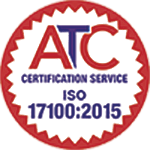The importance of communication in healthcare is without a doubt one of the most important ways of providing the healthcare that patients expect and deserve. It not only improves patient satisfaction but it improves the overall health status of the patient too. This is the perfect scenario but unfortunately, it’s not always met because the means for good communication aren’t always in place.When communication breaks down research has indicated that patients are more likely to be readmitted to the hospital because there has been a serious misunderstanding that if avoided in the first place the need for readmission wouldn’t have taken place.
All patients who turn up to a hospital are treated by a number of different health professionals who help the patient through the healing process. It’s important that there is effective communication in healthcare teams.
The patient may first meet a receptionist who will be responsible for the booking in the process where a record card will be opened. If the hospital is admitted the patient there will be a whole string of health professionals involved in the process from nurses to doctors to cleaners and cooks. Along the way, miscommunication can easily take place but most healthcare facilities take effective communication in healthcare seriously and will do whatever they can to ensure it takes place.
Medical establishments know that patients have high expectations of the sort of care they expect to receive whilst in hospital, and that’s not only from doctors and nurses but from all the support services that are provided. They not only expect good communication but also courtesy and respect from anyone they come across.
What is Effective Communication in Healthcare?
Health Care Staff Members need to be Proactive
Training of healthcare staff is not just about delivering healthcare services that the professional is trained to do but it’s also necessary to communicate with patients in a down to earth manner so that the patient feels more relaxed and comfortable in a difficult environment that’s often hard to handle. Sometimes key healthcare staff needs to break the ice with a new patient and this can be done by comforting the patient and showing an interest in their well-being as a primary method of communication.
Health Communication Impact Factor
If there is a breakdown in communication between a healthcare worker and a patient this could have a serious impact on the health and wellbeing of the patient concerned. The patient may lose confidence in the healthcare provider leading to delays in recovery time and a longer period in hospital recovering. The importance of communication in healthcare can’t be underestimated. Effective communication in healthcare teams is as important as individual communication with a patient. Key points about communication in healthcare
Good Effective Communication in Healthcare Leads to:
- A more relaxed environment for the patient;
- A shorter recovery time;
- Less time required in a hospital environment;
- Happier staff;
- Less disputes over healthcare priorities;
- Poor effective delivery of healthcare services;
- Lower costs.
9 Useful Tips and Tricks for Better and more Effective Communication in Healthcare
1. Use Simplified Language
Patients have a greater tendency to rely on and trust a healthcare professional who uses simple words and language that everybody is able to understand. Trying to use hard medical terminology often alienates a patient and they begin to lose trust. Keeping communication simple through the use of non-medical language will, in the end, provide a far better patient outcome.
2. Communicate Clearly
Speaking and writing in a clear and concise manner when communicating with a patient will mean that the correct message will have been delivered. It will be easy for the patient to ask questions and seek clarification of anything that has been shared, whether in direct communication or via phone or email.
3. Focus on asking simple Questions
The quick and easy to use Yes/No questions and answers are best to use when communicating with a patient.
4. Look out for non-verbal cues
It’s not just the verbal answers that matter but non-verbal signs should be watched as well. Body and facial responses can quickly detect what a patient is thinking. These are particularly important when working with patients who have limited knowledge of English.
5. Request an Interpreter
If the communication in healthcare with the patient isn’t effective enough due to language misunderstanding call for the assistance of an interpreter before the communication gets out of hand. There are various ways interpreters can be used for effective communication in healthcare such as via mobile phone, video conferencing and face to face encounters. Use this when necessary before it’s too late.
6. Use of Technology to Emphasise the Importance of Communication in Healthcare
If you want to check on a patient’s well being and you aren’t physically present with the patient don’t hesitate to use text messaging or emails as a form of 2-way communication. It will be accepted with open arms by the patient as long as the messages are clear, precise and to the point.
7. Listening is as Important as Speaking for Effective Communication in Healthcare
If a patient what’s to share their feelings about their situation just simply listening will help console the individual and put themselves at ease.
8. Establishing a Suitable Dialogue
Keep the conversation going over time with a patient, so you can get feedback on how they feel about the diagnosis, treatment and recovery. Explain to them how important it is to stick to any advice giving to them to aid their recovery.
9. Provide Translations
For your limited English patients don’t leave them in the dark about drug dose requirements and side-effects of treatment; make sure all information is clearly translated into their language by a skilled medical translator. This is key to answering the question of what is effective communication in healthcare.
These communication tricks and tips will help you as a healthcare professional deliver state of the art communication in healthcare so that you know you have done your job and the patient is happy too.



